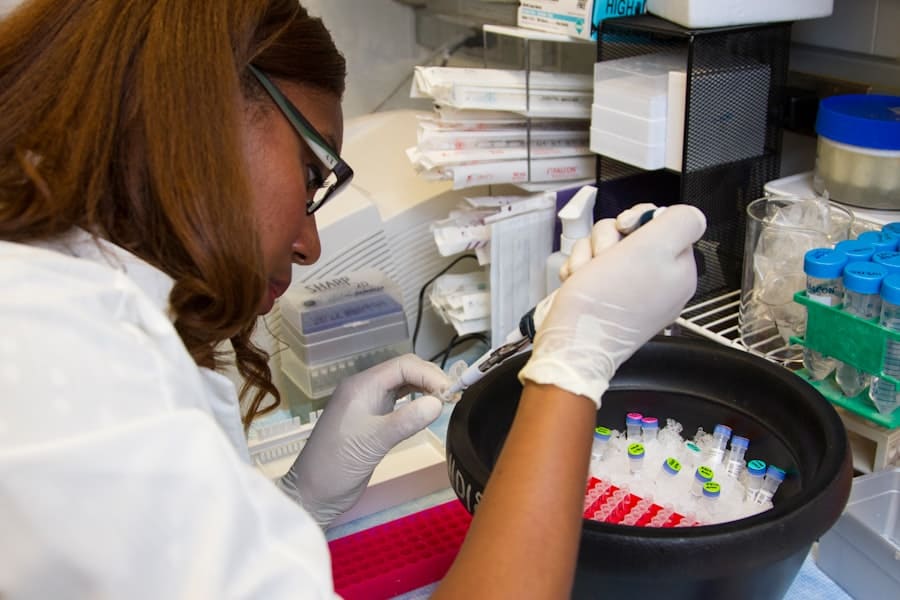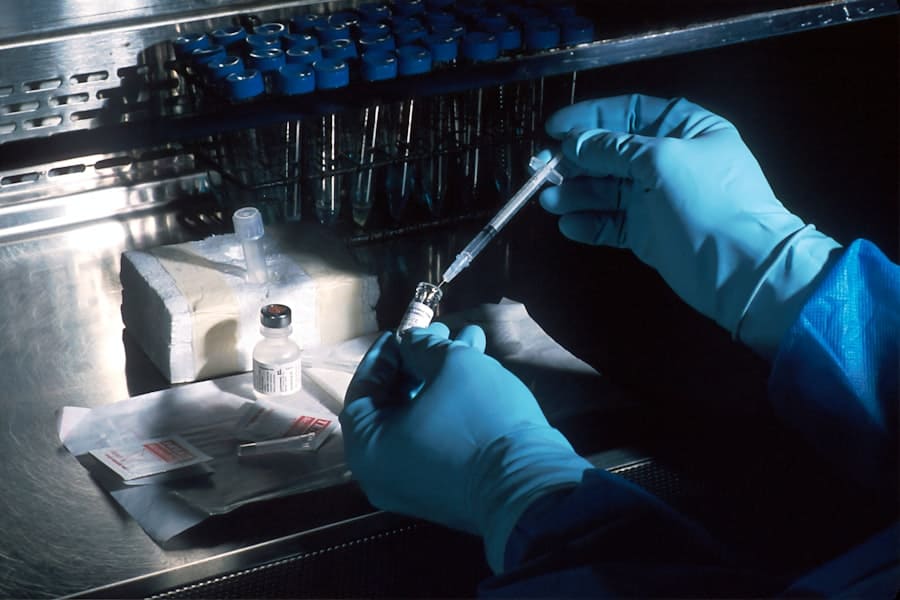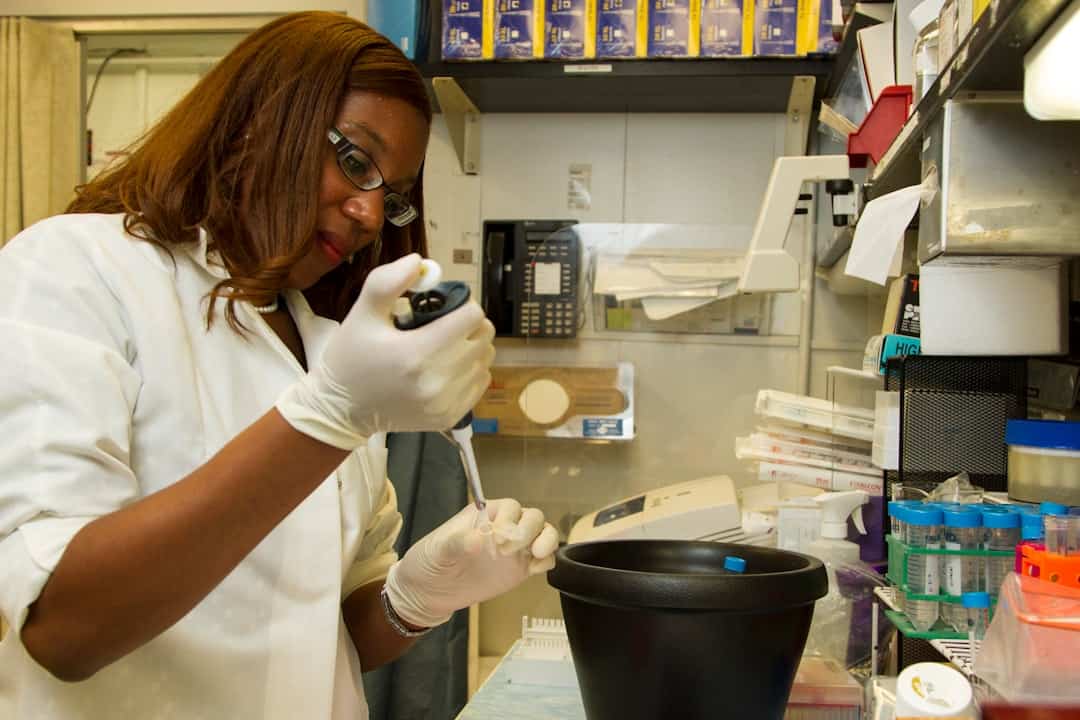Water scarcity is an increasingly pressing global issue, affecting billions of people and threatening ecosystems worldwide. Defined as the lack of sufficient water resources to meet the demands of water usage within a region, water scarcity can arise from various factors, including climate change, population growth, and inefficient water management practices. As the world grapples with the consequences of dwindling freshwater supplies, innovative solutions are urgently needed to address this crisis.
Biotechnology has emerged as a promising field that offers a range of tools and techniques aimed at enhancing water conservation, improving water quality, and developing sustainable agricultural practices. Biotech solutions encompass a wide array of applications, from genetic engineering to microbial technologies, all designed to optimize water use and mitigate the impacts of scarcity. These innovations not only aim to improve agricultural productivity but also focus on enhancing the efficiency of water usage in various sectors.
As the demand for freshwater continues to rise, the integration of biotechnology into water management strategies presents a unique opportunity to create resilient systems capable of withstanding the challenges posed by climate change and human activity.
Key Takeaways
- Water scarcity is a pressing global issue that requires innovative solutions, and biotechnology offers promising advancements in water conservation and purification.
- Current challenges in managing water scarcity include population growth, climate change, and inefficient water use, which necessitate the development of sustainable and efficient water management strategies.
- Biotech innovations such as genetically engineered drought-resistant crops and advanced water purification technologies play a crucial role in addressing water scarcity and ensuring food security.
- Genetic engineering plays a significant role in developing drought-resistant crops that can thrive in water-stressed environments, offering a sustainable solution to water scarcity in agriculture.
- Biotech solutions for wastewater treatment and reuse are essential for mitigating water scarcity, as they enable the safe and efficient recycling of water resources for various purposes.
Current Challenges in Managing Water Scarcity
The challenges associated with managing water scarcity are multifaceted and complex. One of the primary issues is the uneven distribution of freshwater resources across the globe. While some regions are blessed with abundant water supplies, others face severe shortages, leading to conflicts over water rights and usage.
This disparity is exacerbated by population growth, which increases demand for water in agriculture, industry, and domestic use. In many developing countries, inadequate infrastructure further complicates the situation, resulting in significant water losses through leaks and inefficient distribution systems. Additionally, climate change poses a significant threat to water availability.
Altered precipitation patterns, increased evaporation rates, and more frequent extreme weather events such as droughts and floods disrupt traditional water supply systems. These changes not only affect the quantity of available freshwater but also its quality, as pollution from agricultural runoff and industrial discharges contaminates vital water sources. The interplay between these factors creates a challenging environment for policymakers and communities striving to manage water resources sustainably.
Biotech Innovations for Water Conservation and Purification

Biotechnology offers a suite of innovative solutions aimed at addressing the challenges of water scarcity through conservation and purification techniques. One notable area of advancement is the development of bio-based materials that enhance water retention in soil. For instance, hydrogels derived from natural polymers can absorb significant amounts of water and release it slowly to plants, reducing the need for frequent irrigation.
This technology not only conserves water but also improves soil health by maintaining moisture levels essential for plant growth. In addition to soil enhancement, biotechnology has led to breakthroughs in water purification methods. Advanced filtration systems utilizing bioengineered microorganisms can effectively remove contaminants from wastewater.
These microbes can metabolize pollutants such as heavy metals and organic compounds, transforming them into harmless byproducts. Such bioremediation techniques are particularly valuable in regions where traditional wastewater treatment facilities are lacking or overwhelmed by demand. By harnessing the natural capabilities of these organisms, communities can improve their water quality while minimizing reliance on chemical treatments.
The Role of Genetic Engineering in Developing Drought-Resistant Crops
Genetic engineering plays a pivotal role in developing crops that can thrive in arid conditions, thereby contributing to more efficient water use in agriculture. Through techniques such as CRISPR-Cas9 gene editing, scientists can modify specific genes associated with drought resistance in plants. For example, researchers have successfully engineered varieties of rice and maize that exhibit enhanced tolerance to water stress, allowing them to maintain yields even under limited irrigation conditions.
These drought-resistant crops not only help farmers cope with changing climatic conditions but also contribute to food security in regions prone to droughts.
Furthermore, the adoption of such crops can lead to more sustainable farming practices, as farmers are less reliant on chemical fertilizers and pesticides when growing resilient varieties.
Biotech Solutions for Wastewater Treatment and Reuse
The treatment and reuse of wastewater represent a critical component in addressing water scarcity challenges. Biotechnological advancements have paved the way for more efficient and effective wastewater treatment processes. One promising approach involves the use of engineered microorganisms that can break down organic matter and nutrients in wastewater more rapidly than traditional methods.
These microbes can be tailored to target specific pollutants, resulting in cleaner effluent that can be safely reused for irrigation or industrial processes. Moreover, biotechnological innovations have led to the development of decentralized wastewater treatment systems that are particularly beneficial for rural or underserved communities. These systems often utilize natural processes such as constructed wetlands or biofilters that rely on microbial activity to purify wastewater.
By integrating these technologies into local water management strategies, communities can reduce their dependence on centralized treatment facilities while promoting sustainable practices that conserve freshwater resources.
Potential Risks and Ethical Considerations in Biotech Water Management

While biotechnology offers promising solutions for managing water scarcity, it is essential to consider the potential risks and ethical implications associated with its application. One concern is the unintended consequences that may arise from genetic modifications in crops or microorganisms. For instance, engineered plants may crossbreed with wild relatives, leading to unforeseen ecological impacts or loss of biodiversity.
Additionally, there is a risk that reliance on biotech solutions could create a false sense of security regarding water availability, potentially discouraging necessary conservation efforts. Ethical considerations also extend to issues of access and equity. As biotech innovations become more prevalent, there is a risk that they may not be accessible to all communities equally.
Ensuring that biotech solutions are developed and implemented in an inclusive manner is crucial for fostering equitable outcomes in water management.
Collaborations and Investments in Biotech Solutions for Water Scarcity
The successful implementation of biotech solutions for water scarcity requires collaboration among various stakeholders, including governments, research institutions, private companies, and non-governmental organizations. Public-private partnerships can facilitate the sharing of knowledge and resources necessary for developing innovative technologies tailored to local needs. For example, initiatives that bring together agricultural scientists and local farmers can lead to the co-creation of drought-resistant crop varieties that are specifically suited to regional climates.
Investment in biotech research is also critical for advancing solutions to water scarcity challenges. Governments and private investors are increasingly recognizing the potential returns associated with sustainable water management technologies. Funding research projects focused on developing new biotechnological applications can accelerate innovation and lead to scalable solutions that address pressing water issues globally.
By prioritizing investments in this field, stakeholders can contribute to building resilient systems capable of adapting to future challenges.
The Future Outlook for Biotech Solutions in Managing Water Scarcity
Looking ahead, the future of biotech solutions in managing water scarcity appears promising yet complex. As climate change continues to impact global water resources, the demand for innovative approaches will only intensify. Advances in biotechnology will likely play a crucial role in developing adaptive strategies that enhance resilience against droughts and floods while ensuring sustainable agricultural practices.
Moreover, ongoing research into synthetic biology may yield even more sophisticated tools for addressing water scarcity challenges. For instance, engineered microorganisms could be designed not only for wastewater treatment but also for capturing atmospheric moisture or desalinating seawater more efficiently than current methods allow. As these technologies evolve, they hold the potential to transform how societies manage their water resources.
However, realizing this potential will require careful consideration of ethical implications and equitable access to biotechnological advancements. Ensuring that all communities benefit from these innovations will be essential for fostering sustainable development and addressing global disparities in water access. As stakeholders continue to collaborate on solutions for water scarcity, biotechnology will undoubtedly remain at the forefront of efforts aimed at creating a more sustainable future for all.
In a related article discussing the latest advancements in technology, Enicomp explores the features of the Samsung Galaxy Chromebook 2. This article delves into the innovative design and functionality of this cutting-edge device, highlighting how it can enhance productivity and efficiency in various tasks. To read more about this exciting piece of technology, check out the article here.
FAQs
What is biotech solutions in managing water scarcity?
Biotech solutions in managing water scarcity refer to the use of biotechnology to develop innovative and sustainable methods for addressing water scarcity issues. This can include the development of drought-resistant crops, water purification technologies, and efficient water management systems.
How can biotech solutions help in managing water scarcity?
Biotech solutions can help in managing water scarcity by developing crops that require less water, improving water purification technologies, and creating more efficient irrigation systems. These solutions can help conserve water resources and ensure sustainable access to clean water for agriculture, industry, and communities.
What are some examples of biotech solutions for managing water scarcity?
Examples of biotech solutions for managing water scarcity include genetically modified crops that are drought-resistant or salt-tolerant, bioremediation techniques for cleaning up contaminated water sources, and the development of water-efficient biofuels. Additionally, biotechnology can be used to create more efficient water treatment and desalination technologies.
What are the potential benefits of biotech solutions in managing water scarcity?
The potential benefits of biotech solutions in managing water scarcity include increased agricultural productivity in water-stressed regions, improved access to clean drinking water, and reduced environmental impact from water-intensive industries. These solutions can also contribute to global efforts to achieve water sustainability and resilience in the face of climate change.
What are the challenges and limitations of biotech solutions in managing water scarcity?
Challenges and limitations of biotech solutions in managing water scarcity include concerns about the environmental and health impacts of genetically modified organisms, the need for regulatory oversight and public acceptance, and the potential for unintended consequences in ecosystems. Additionally, the cost and scalability of biotech solutions can be barriers to widespread adoption.

